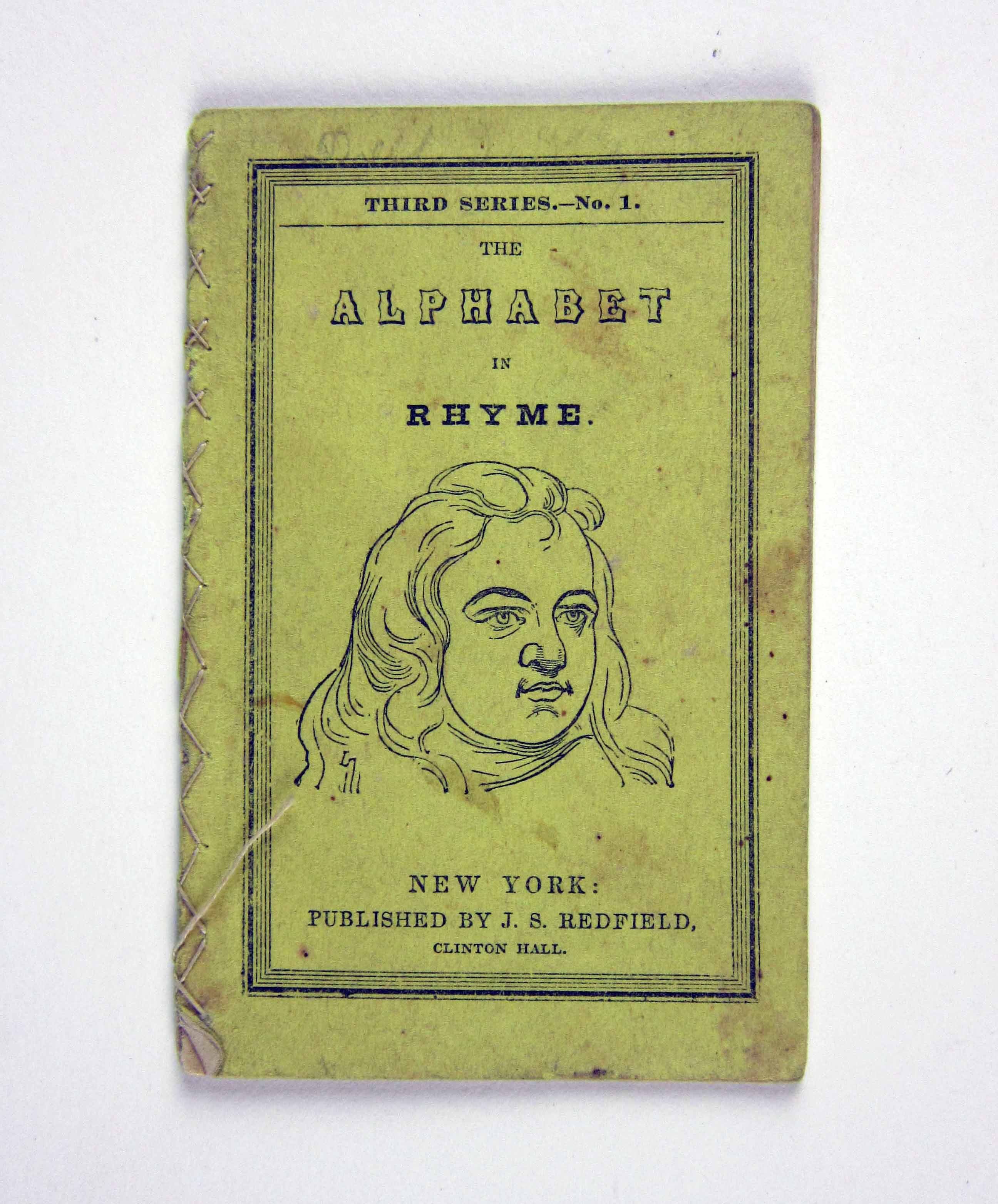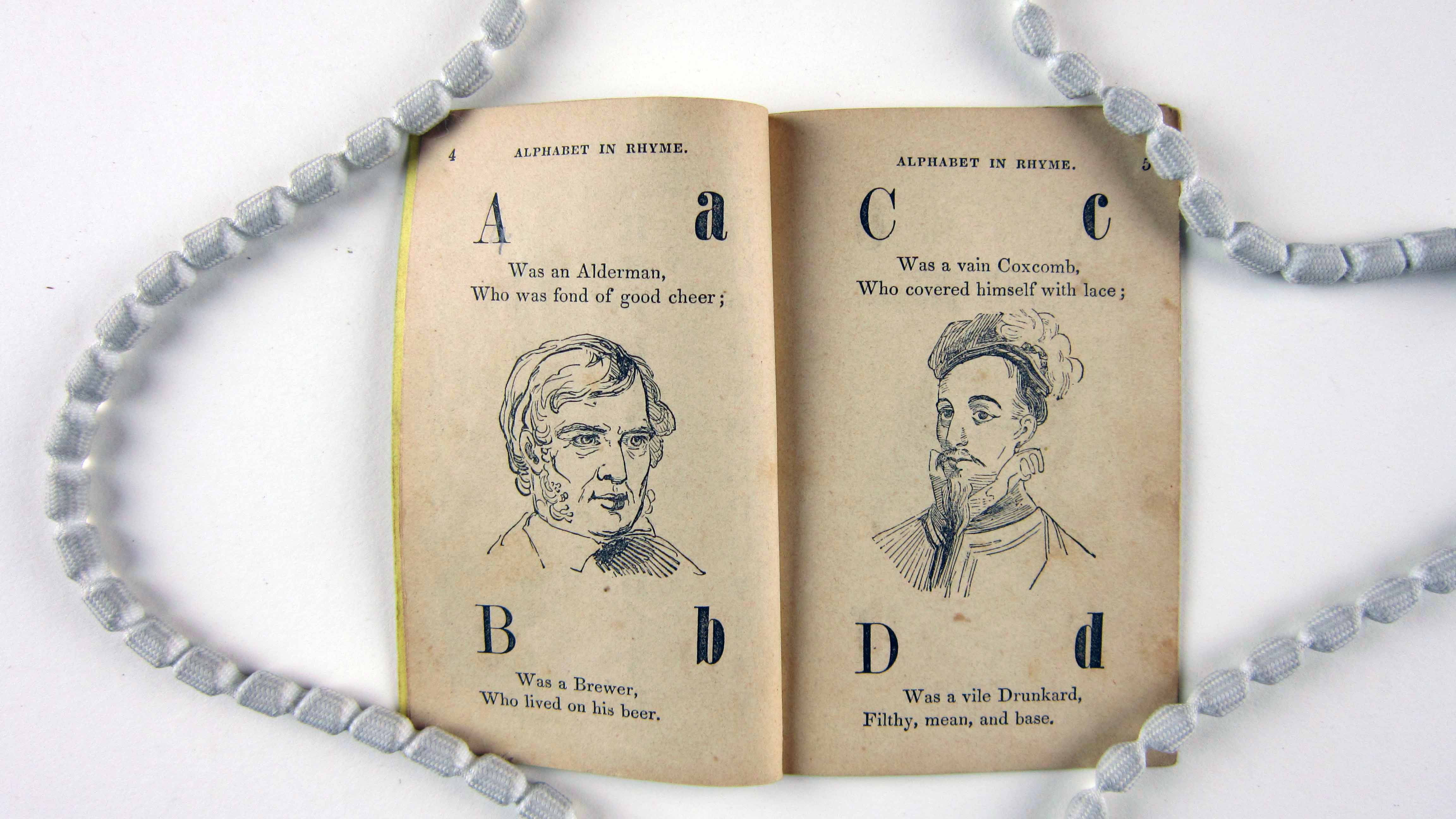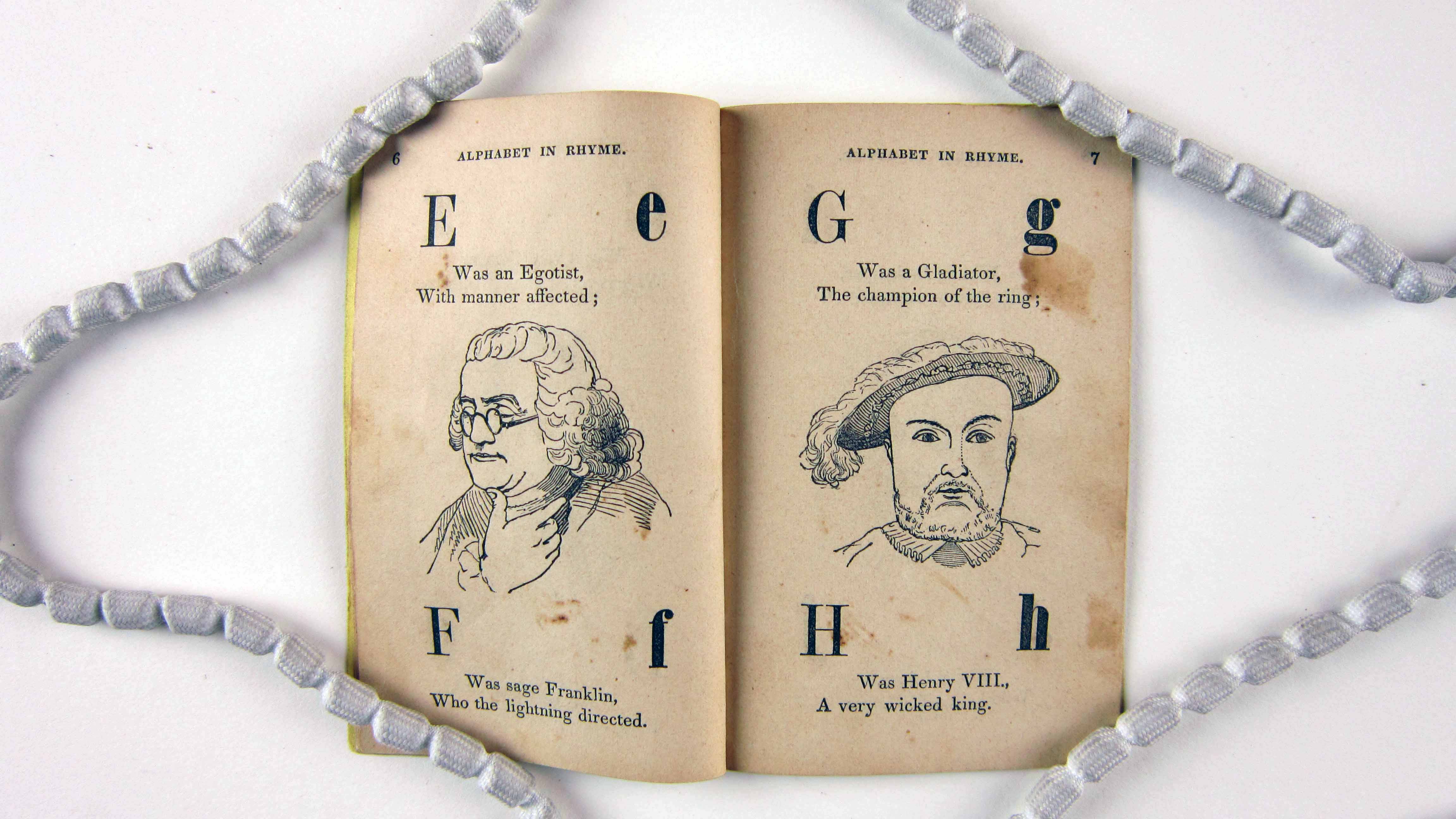

Alphabet books offer a vivid insight into the history of literacy and culture, as well as concepts of childhood. The Children's Book Collection at UCLA contains a rich array of these materials, some well-worn and much-used, some still bright and fresh. Each is a gem of print production and graphical imagery from another time and place. Though the history of alphabet books continues to the present, this exhibit focuses on the works in our collections published between 1700 and 1900, including horn books, primers, works of didacticism and seriousness, whimsy and play.
2. A Jumble ABC
3. A Little Pretty Pocket-Book
4. A New Lottery Book of Birds And Beasts
5. A Pretty Play-Thing for Children of All Denominations
8. ABC of Objects for Home And School
10. ABC with Pictures & Verses
12. Alphabet Et Instruction Pour Les Enfans
16. Dolly's ABC Book
17. Flora's ABC
18. Home ABC
22. Hornbook C. 1700
23. Large Letters for the Little Ones
24. Little ABC Book
25. Little People: An Alphabet
26. Martin's Nursery Battledoor
27. Mother Goose ABC
28. My Darling's ABC
29. Orbis Sensualium Pictus Quadrilinguis
30. People of All Nations: A Useful Toy for Girl Or Boy
31. Picture Alphabet
32. Pretty ABC
33. Railway ABC
34. Rusher's Reading Made Most Easy
38. The Alphabet of Old Friends
40. The Amusing Alphabet for Young Children Beginning To Read
42. The Child's Christian Education
45. The Easter Gift
47. The Favorite Alphabet for the Nursery
49. The Franklin Alphabet And Primer
51. The Golden ABC
55. The Moral And Entertaining Alphabet
57. The Old Testament Alphabet
59. The Picture Alphabet for Little Children
62. The Sunday ABC
63. The Union ABC
64. The Young Child's ABC, Or, First Book
65. Tom Thumb's Alphabet: Picture Baby-Books
67. Warne's Alphabet And Word Book: with Coloured Pictures
68. Wood's Royal Nursery Alphabet
Title The Alphabet In Rhyme



Brief description 16 p. ; ill. (wood-engravings)
Full description This delicate alphabet book describes different individuals and various types of people (e.g. "a Brewer" and "Benjamin Franklin") in short rhyming couplets, exploring concepts of morality, social class, and occupation. The combination of figures chosen, vocabulary used, and the stark presentation of simple wood engraving prints without color indicate this alphabet book was intended for an older child.
Literacy By 1840, the definition of literacy had progressed well beyond being capable of putting a signature to a will or other legal document. Although the alphabet is presented alone in its entirety, in and out of order and with uppercase and lowercase letters, the main contents of the book are small couplets, rather than individual words for each letter. Remnants of the moralistic Puritanical emphasis on literacy may be seen in the judgment of the drunkard as vile and Henry VIII as wicked.
Childhood The child who would be given The Alphabet in Rhyme would likely be older and further advanced in reading skills than a beginner. The book is rather small and delicate. Even if the stitched binding was a later addition or attempt at a repair, the book is small and the pages are thin. A very young child would not be given such a fragile item.
The pictures are wood engravings in black and white, not the brightly colored pictures that would hold the attention of a younger child. Each letter represents a type of person, upon which the couplet elaborates. This content suggests that the knowledge of the reader has advanced beyond the simple childhood objects centered around the home (such as ball, cat, dog, etc.) to include some notion of the wider world, with ideas such as social class, race/culture, and occupation.
Iconography While all of the vocabulary and illustrations chosen for this alphabet book are centered on people, there is a fair variety in the type of people pictured. Professions are included (the Brewer), as well as American (Benjamin Franklin) and European (Henry VIII) historical figures. Henry VIII is denounced as a wicked king, suggesting that the child using this alphabet book may be studying history, as well. The variety of people portrayed would indicate a fairly broad education was to be expected, if they were to be easily recognized by the reader.
Production This delicate, single-signature, stitched book is an excellent example of a chapbook: thin paper, small size, simple illustrations lacking any color, and a cover of only slightly thicker paper than the interior pages. These characteristics are all ways to lower expenses in printing.
The back cover indicates the book would have sold for anywhere between one and six cents, and at some later point was re-sold, as ".50" is penciled into the upper left of the first interior page. The text is letterpress, and the images woodcut relief printing (left without color). The ability to print the text and images at the same time simplified the printing process and allowed the books to be produced more cheaply.
Publisher J .S. Redfield
Publication place Mercantile Library, Clinton Hall, New York
Date 1840
UCLA Call Number CBC GR486 .A57 1840
Repository UCLA Charles E. Young Research Library, Dept. of Special Collections
Dimensions 12 cm
Technologies of production Printing
Caption